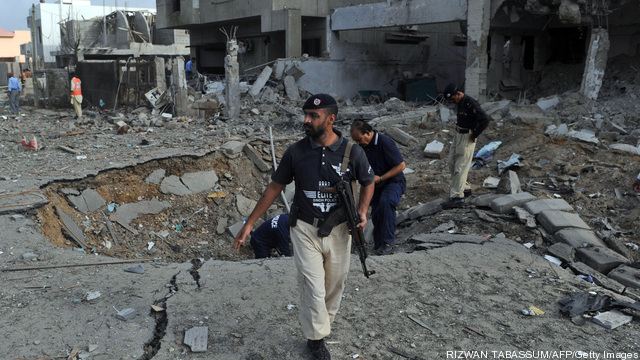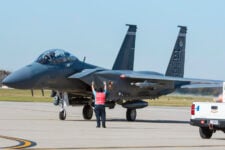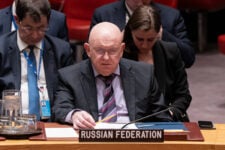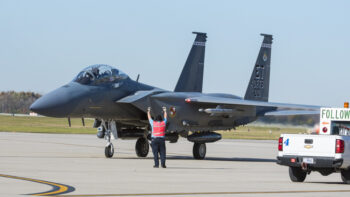 Two top Pentagon spokesmen’s exchange with reporters today illustrated why U.S.-Pakistani relations are like a troubled marriage that at least one partner would like to preserve.
Two top Pentagon spokesmen’s exchange with reporters today illustrated why U.S.-Pakistani relations are like a troubled marriage that at least one partner would like to preserve.
Defense Secretary Leon Panetta’s spokesman George Little and Joint Chiefs chairman Adm. Michael Mullen’s flak Navy Capt. John Kirby echoed their bosses’ accusation that Pakistan’s Inter-service Intelligence agency (ISI) actively supports attacks against U.S. and Afghan forces by the Pakistan-based Haqqani terrorist network.
They also repeated their warning that the billions of dollars the U.S. has given the Pakistani military over the last decade is threatened by that support.
Cutting off aid is a decision the administration and Congress would have to make, Kirby said, then added, Pakistani officials “know, and we’ve made it very specific, that aid is dependent on their assistance” in the fight against terrorism.
Lawmakers from both parties have threatened to reduce or end financial aid to Pakistan if it does not do more to stop terrorist attacks across its border into Afghanistan. The Senate Appropriations Committee this week added language making future aid to Pakistan conditioned on greater cooperation.
Although U.S. officials “still want to pursue relations” with Pakistan, Kirby said, “this is a relationship that needs a lot of work.”
The two spokesmen would not go beyond the statements their bosses made at a Senate Armed Services Committee hearing Thursday in which they linked the ISI to the extended attack Sept. 13 against the U.S. Embassy and the ISAF military headquarters in Kabul and a Sept. 10 truck-bomb attack on a U.S. compound that wounded 77 Americans.
Kirby refused to talk about the intelligence behind their accusations, but said, “we’re confident the ISI supports and even encourages Haqqani attacks” in Afghanistan.
The Haqqani organization was among the groups U.S. and Pakistani intelligence supported to fight the Soviet Union’s occupation of Afghanistan, then sided with the Taliban when it took over the country after the Soviet withdrawal.
U.S. intelligence officials say the ISI continues to support the Haqqani gang and other Muslim terrorist groups to maintain leverage against its historic enemy, India, after U.S. forces leave Afghanistan.
Kirby became clearly irritated at reporters’ questions that indicated Mullen was getting tough on Pakistan because he retires in a week. He pointed to the numerous past statements and warnings Mullen has made about ISI connection to terrorist attacks in Afghanistan.
Kirby noted Mullen’s extensive efforts to build ties to the Pakistani military, including about 30 meetings with Gen. Ashfaq Kayani, the Pakistani Army chief, who previously was the ISI commander. “No one has worked harder to build this relationship than Adm. Mullen.”
But he added, Mullen also has the responsibility to protect U.S. and coalition troops in Afghanistan. Mullen had to speak publicly about the warnings he has given Kayani in private because “he cares deeply,” Kirby said.
Boeing buys GKN factory, ending dispute over F-15, F/A-18 parts
Through the deal, Boeing’s litigation with supplier GKN Aerospace will be dropped, and the aerospace giant will take possession of a St. Louis-area factory it used to own.


























